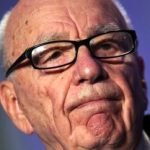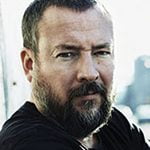2014: a year in C21 headlines
C21 takes a look back over the last 12 months at the 21 biggest stories that shaped the content business in 2014 – a tumultuous period in the history of media, with the pace of change only set to accelerate next year.

Chet Kanojia
The rise and fall of Aereo
US internet TV start-up Aereo has been a regular in both the news pages and the courts during the past 12 months but for CEO Chet Kanojia it was ultimately a year that ended in disappointment and failure. It could have been a different story but for US broadcast giants including CBS, NBC and Fox, which spotted the potential damage Aereo’s live TV streaming service could have on their own business models and claimed it infringed on copyright laws. The case eventually reached the US Supreme Court, which said the method of using ‘personal antennas’ without a DTH subscription broke the law and ordered it to cease trading. Despite repeated attempts to repeal the decision, the ruling has stuck and Aereo has since filed for Chapter 11 bankruptcy protection, allowing the US networks to breathe again.

Bosch
Amazon’s move into original content
Amazon may be playing second fiddle to Netflix in the video-on-demand stakes but the retail giant’s online pilot process has certainly made an impact on the writers and producers it’s working with. Having started out in kids’ entertainment and comedy, the firm’s first original dramas were released in 2014 in the form of Bosch and The After. But it was really transgender comedy-drama Transparent that put Amazon on the map, garnering the company its first major nomination this month, putting it in the running for a Golden Globe. Across the pond, the company won plaudits for stepping in to save period crime thriller Ripper Street when the BBC said it could not afford to fund a third season of the show.

Breaking Bad
AMC Networks’ global growth
It was a busy year for the top brass at US-based AMC Networks, after The Walking Dead, Mad Men and Breaking Bad cablecaster revealed plans to launch outside of North America for the first time. Local versions of its flagship network are being rolled out on cabsat platforms across Europe, Latin America, Asia, Africa and the Middle East, replacing the MGM Channel, which it acquired after buying Chellomedia in February for US$1bn. It then went back to the bank to cough up another US$200m for a 49.9% stake in BBC America, the US cablenet that’s home to Doctor Who and Orphan Black. That deal with BBC Worldwide gave AMC operational control of the channel and is set to strengthen an already well-tested drama coproduction relationship between the two firms.
BBC3 becomes web-only
When the BBC confirmed it was to cease its youth-skewing BBC3 brand as a broadcast network and instead make it available online-only, it said it was doing so out of necessity. Public service broadcasters all around the world are being squeezed and the UK’s standard-bearer is no exception. The move – due in the autumn of 2015 – will save the BBC over £50m (US$85.6m) a year – £30m of which will be pumped into drama on flagship network BBC1. But this is also a chance to do something really innovative and the intention is to commission programming that is not constrained by the conventions of television. The plan is fast taking shape and other pubcasters are watching closely. Some, such as Sweden’s SVT, have already begun to follow suit. Expect to see more do so next year and beyond.
China embraces reality online
The first Chinese version of Big Brother is in the works but not for TV. The fact that the classic Endemol reality format will land up at the country’s leading online video destination, Youku Tudou, said much about the future of the industry. China is emerging as a major licensee of foreign IP whereas in the past it’s been accused of running roughshod over copyright. That Big Brother is destined for the online universe – a place where the problem of privacy is particularly rife – also highlights the changing nature of this landscape. HBO recently formed an alliance with another Chinese online giant, Tencent, making it the official home of its shows in the territory. Tencent has similar partnerships in place with the likes of John de Mol’s Talpa, which remains the target of a potential Chinese takeover. Meanwhile, Lionsgate has entertained suitors including Chinese e-commerce giant Alibaba, following the latter’s US$25bn stock market debut – the biggest IPO of 2014.
DHX buys Nerd Corp
Canada’s DHX Media rounded off 2014 with the acquisition of Vancouver-based Nerd Corps Entertainment for approximately C$57m (US$50m), establishing it as Canada’s leading producer and distributor of animation. This came after the firm received final approval for its proposed C$170m (US$160m) acquisition of Canadian kids’ cable networks Family Channel, Disney XD and Disney Junior from Bell Media, marking its first ever move into the channels business, aside from a growing YouTube presence.

Farah Ramzan Golant
Discovery’s All3Media deal
FremantleMedia may have begun the year in pole position to acquire UK superindie All3Media but once its period of exclusivity lapsed Discovery Communications and Liberty Global wasted no time in putting together a deal. The closure of the transaction inevitably prompted a wave of senior management changes across the All3Media group of companies, with the firm still seeking an overall CEO following the departure of Farah Ramzan Golant. Among the other high profile exits was distribution chief Louise Pedersen as Discovery/Liberty aim to forge a new era for All3, potentially putting the firm back on its own acquisitions trail.

Skywire Live with Nik Wallenda
Discovery moves into sport
US factual giant Discovery Communications experienced mixed fortunes with its live stunts in 2014, with Nik Wallenda successfully returning to the high-wire while wing-suit daredevil Joby Ogwyn was forced to abandon a planned leap from Everest. But live is increasingly where it’s at for Discovery and live sports in particular after it took a controlling interest in Eurosport International through a deal with France’s TF1 Group. The two companies have already merged their distribution teams and expect to see Eurosport substantially expand its footprint through 2015 and up the ante in the bidding for major sports rights.
Disney buys Maker Studios
The flurry of excitement around YouTube talent and channel management specialists or MCNs (multi-channel networks) was raised considerably when Disney paid US$500m for Maker Studios. The deal, which could yet see the Mouse House shell out a total of nearly US$1bn for the business, raised eyebrows in some quarters but the MCN landgrab was a theme of 2014 with other transactions including Germany’s ProSiebenSat.1 Group taking a stake in Collective Digital Studios in the US, Rightster acquiring Base79 in the UK, and Europe’s RTL Group buying out StyleHaul in the US.

Lis Murdoch
The creation of Endemol Shine Group
The deal agreed between 21st Century Fox and Apollo Global Management to merge Shine Group, Endemol and Core Media created the world’s first ‘mega-indie’ in the shape of the freshly named Endemol Shine Group (ESG). This was the story of 2014 – the creation of a global production powerhouse bringing MasterChef, Big Brother and American Idol under one roof. For Shine, part of what was News Corp since 2011, the deal marked a watershed moment with founder and chairman Elisabeth Murdoch exiting while brother James, 21st Century Fox co-COO consolidating his position as heir apparent to father Rupert and installing former BSkyB content chief Sophie Turner Laing as ESG’s CEO at the expense of Shine CEO Alex Mahon. For Endemol, the process marked the end of a protracted period of refinancing, strengthening of Tim Hincks’ position as president while CEO Just Spee departs, with an expanded international network and creative pipeline, free from the burdens of debt. Core, meanwhile, faces the challenge of the inevitable decline of Idol, while Shine and Endemol too hunt the next big formats after MasterChef and Big Brother.

Game of Thrones
HBO moves into OTT
October is normally associated with deal-making and cocktail-drinking at Mipcom in Cannes but most of the industry’s attention was drawn to the other side of the Atlantic when US cablenet HBO revealed it would be launching a standalone internet-based on-demand service in the US in 2015. Not only did its plans to target the 10 million broadband-only homes in the US with shows such as Game of Thrones and The Newsroom help to dent the Netflix share price, it also set off a chain reaction of similar moves, first from CBS. Its CBS All Access web TV service will offer more than 6,500 episodes for US$5.99 a month, while Starz, the US cablenet behind dramas Boss and Black Sails, signalled its intentions to join the OTT race by pledging US$20m for a roll-out of its own in 2015.

Danny Zappin
ITV expands its US footprint
ITV Studios became the largest independent producer of unscripted programming in the US with the US$360m acquisition of Pawn Stars producer Leftfield Entertainment. This followed a string of investments over the previous 18 months, including Gurney Productions, High Noon Entertainment Thinkfactory Media and DiGa Vision. The UK company’s growing US profile resulted, however, in a spat with the Writers Guild of America East. ITV continued to make stateside investments, buying into branded content specialist Believe Entertainment Group and digital prodco Indigenous Media. It rounded out 2014 by taking a stake in Zealot Networks, the new US multi-channel network from former Maker Studios co-founder and CEO Danny Zappin.

Ted Sarandos
Netflix expands into Europe
Hardly a week went by in 2014 without a Netflix headline. The BBC this week admitted to being ‘blown out of the water’ by the US subscription VoD service when it comes to bidding for programme rights. Its impact is being felt across the entire industry, with European expansion having been a major focus of the past 12 months and more to come in 2015. Netflix’s strategy of investing in landmark original productions is also spreading to the UK and France, with the scale of budgets and the creative freedom afforded writers and producers, forcing the rest of the business to respond. Not content with disrupting television, the firm also announced plans for its first original movie.

Rising Star
Rising Star’s international trajectory
After a successful launch in Israel and a heavily marketed international roll-out, Keshet International’s talent format Rising Star ended 2014 being dropped by several networks following poor ratings. ABC’s US version failed to make an impact while Germany’s RTL Television finished its first season prematurely. French broadcaster M6 brought its version to an early end after initially standing by the show and UK broadcaster ITV scrapped its version entirely ahead of a planned 2015 launch. However, the format has been renewed in markets including Brazil.
The Russian bear flexes its muscles
2014 has been a tumultuous year for Russians and those operating businesses in the country, after its TV industry suffered a series of wide-ranging reforms that are transforming its television landscape. Operators including Modern Times Group and Viacom faced the prospect of having to drastically overhaul their business models after the country moved to ban advertising on pay TV channels in July, while plans to extend a law restricting foreign ownership stakes of channels from 20% stakes to 50% were signed off in October. BBC Worldwide then axed a planned roll-out of one of its new channel brands in the country following the changes, while US news channel CNN became the first major casualty of the reforms and will go dark from in the country at the end of this year. TV execs will be watching intently to see what president Vladimir Putin does next.

Rupert Murdoch
Sky creates Euro pay TV giant
UK satcaster BSkyB began the year as one of the largest broadcasters in Britain and ended 12 months later as a European-wide operation with a programming spend that it claims tops US$7bn. Rumours of a takeover of Sky Deutschland and Sky Italia emerged in May, and the deal to buy its sister platforms in Italy and Germany from Rupert Murdoch’s 21st Century Fox was agreed in July. BSkyB ended up taking a 90% stake in Sky Deutschland and complete control of Sky Italia at a cost of nearly £7bn, with the newly enlarged firm, known simply as Sky, now eyeing cost efficiencies and cross-border cooperation to serve its 20 million customers across Italy, Germany, Austria, the UK and Ireland. Its 31,000 staff, who operate from 30 offices, will be intrigued to see how 2015 pans out.

George Osborne
UK wins kids’ TV tax breaks
After a long-running campaign, the UK kids’ TV community could finally celebrate after the country’s Chancellor of the Exchequer George Osborne announced a tax break was to be introduced for the production of children’s live-action television. The decision came after the government last year set up tax breaks for high-end television drama and animation made in the UK, which have had a positive effect on both industries. Industry reaction to the announcement was unanimously positive with leading figures from the kids’, film and investment sectors praising the government’s decision. The new tax relief will be available from April 1, 2015, at a rate of 25% on qualifying production expenditure, bringing it in line with the animation and high-end TV tax break.
Viacom takes over Channel 5
Viacom became the first US media company to own a UK terrestrial broadcaster when it acquired Channel 5 from Northern & Shell for £450m (US$759m), promising a “shot in the arm” for the territory’s production industry. November’s MTV Europe Music Awards achieved record ratings thanks to a C5 simulcast and the two networks have already begun jointly commissioning programmes, while Nickelodeon and C5 kids’ strand Milkshake will hope to benefit from crossover.

Shane Smith
Vice on the rise
After 21st Century Fox paid US$70m for a 5% stake in Vice Media back in 2013, the youth-skewing multimedia outlet continued to attract investors through 2014, with A+E Networks pushing the value of the firm higher, buying a 10% stake for US$250m. Silicon Valley-based Technology Crossover Ventures quickly followed suit. Vice soon after fired up a joint venture studio with Rogers Communications in Canada and another with 20th Century Fox. Vice CEO and co-founder Shane Smith told the Financial Times earlier this month the company intends to go on a “deal spree” in 2015 and may consider a stock market flotation.
Vodafone buys Ono
Something was certainly in the water in Spain this year. One of the largest ever deals involving cable operators was finalised in the country in July when Vodafone’s acquisition of Spanish cable operator Ono for €7.2bn (US$10bn) was approved by the European Commission. UK telecoms giant Vodafone continued its push into TV by confirming it would use some of the US$130bn proceeds from the sale of its 45% stake in US-based Verizon Wireless to create a stronger challenger to Spanish market leader Telefonica. But Telefonica had its own plans. In the same month, the Spanish firm acquired an 11.1% stake in Silvio Berlusconi’s Mediaset Premium pay TV operation for €100m (US$136m). That deal came three days after Telfonica bought Mediaset’s 22% stake in Spanish pay TV operation Digital Plus for a US$400m. This followed the firm taking full control of Spain’s Canal+. Expect more telecom firms to expand into the pay TV and content industries in 2015.

Nancy Tellem
The rise and fall of Xbox Studios
In October, Microsoft closed down Xbox Entertainment Studios (XES), resulting in the departure of president of entertainment and digital media of Nancy Tellem and exec VP Jordan Levin. The tech giant revealed in July that it would be closing the production arm of the games console firm after only two years in business as part of plans to axe up to 18,000 jobs. The move prompted US cablenet AMC to replace Xbox as a coproduction partner on sci-fi drama Humans. XES was launched in 2012 to create original television content for the Xbox Live online service, but the firm will now refocus its attentions on gaming – the Xbox console’s original purpose.
By Jonathan Webdale, Andy Dickens and Richard Middleton.

























.jpg)




























